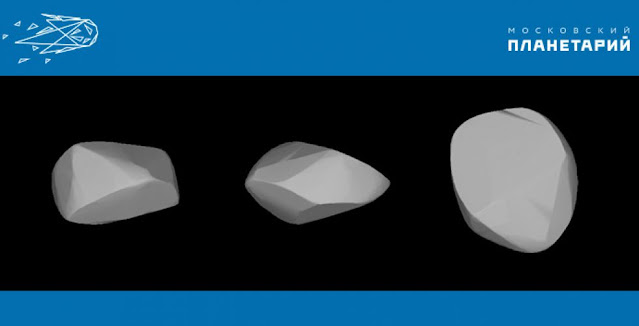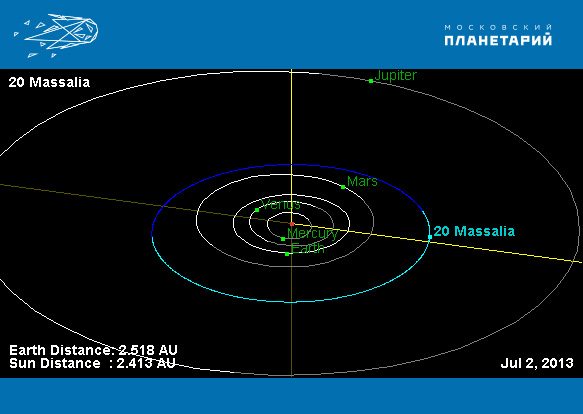Moscow Planetarium logo.
Oct. 23, 2021
Asteroid families are fragments of large asteroids that collided and collapsed. During collisions, the parent asteroids can completely collapse, but there are also families in which the parent asteroid remained intact or almost intact.
If the object that collided with the asteroid was not very large, then it can knock out many small fragments from the asteroid, which then make up the family. Moreover, the mass of the main asteroid is more than 90% of the mass of the family. So the Massalia family was formed, named after the largest representative.
The main asteroid of the family was discovered in 1852 by the Italian astronomer Annibale de Gasparis at the Capodimonte Observatory in Naples. It was named after the Greek name of the French city of Marseille. It was the twentieth main belt asteroid discovered, therefore its official name is 20 Massalia.
This family consists of many small fragments that were knocked out of it as a result of a collision with another smaller cosmic body. Massalia is about 150 km across, concentrating more than 99% of the mass of the entire family. The second largest asteroid of this family (7760) 1990 RW3 does not exceed 7 km in diameter. There are more than 6,000 small asteroids in the Massalia family.
According to scientists, the Massalia family was formed 150-200 million years ago. It is divided into two regions, between which is the main asteroid of the family. Moreover, the density of asteroids in these areas is less than in the central zone around Massalia. The family belongs to the group of asteroids of the spectral class S, with a predominantly silicate composition. This family includes about 0.8% of the main belt asteroids. The Massalia family may be a source of interplanetary dust in this region of the asteroid belt, resulting from secondary collisions of small asteroids of this family.
Source: Moscow Planetarium.
Related links:
ROSCOSMOS Press Release: https://www.roscosmos.ru/33077/
Moscow Planetarium: https://www.roscosmos.ru/tag/moskovskiy-planetariy/
Asteroid: https://www.roscosmos.ru/tag/asteroid/
Images, Text, Credits: ROSCOSMOS/Moscow Planetarium/Orbiter.ch Aerospace/Roland Berga.
Best regards, Orbiter.ch



